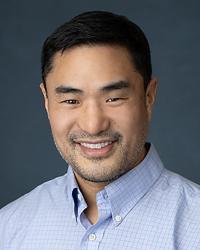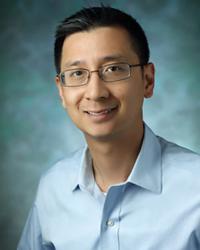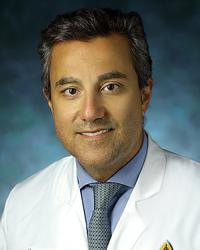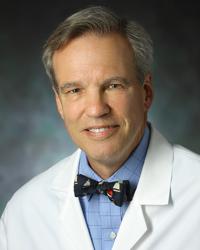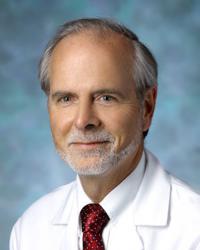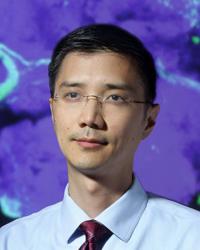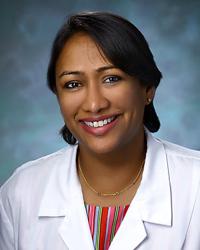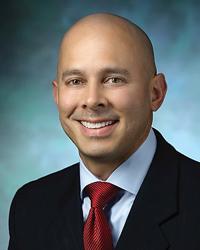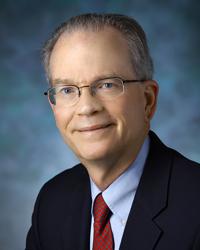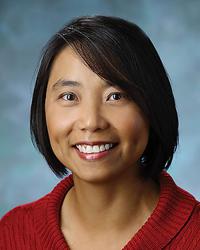Sleep Medicine Fellowship Program
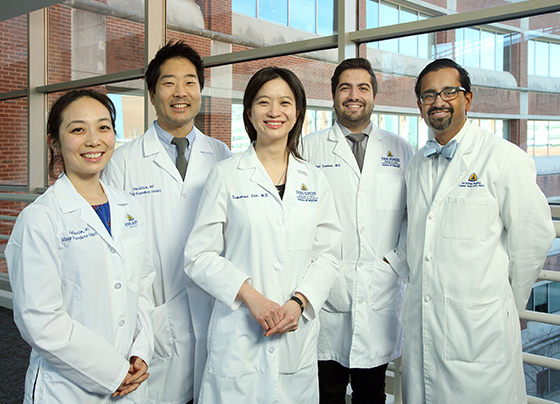
The Johns Hopkins University School of Medicine offers a 12-month Sleep Medicine clinical fellowship program accredited by the Accreditation Council for Graduate Medical Education. The program has trained numerous post-doctoral fellows over the past 30 years. The fellowship offers a wide-ranging curriculum that prepares trainees to become outstanding board-certified specialists in academic sleep medicine and clinical practice. The program interweaves a series of longitudinal outpatient clinics in settings including the Johns Hopkins Hospital and Johns Hopkins Bayview Medical Center with sleep specialty clinics that provide a diverse and rewarding clinical training experience. Distinct areas of training include outpatient and inpatient adult and pediatric sleep medicine rotations with our multidisciplinary faculty, including continuity practice experiences; review of polysomnography, home sleep testing and other sleep-related diagnostic studies; participation at conferences including core curricular lectures, weekly case conference, journal club and research conference; and elective time allowing for a concentrated experience in adult or pediatric sleep disorders.
Clinical Program
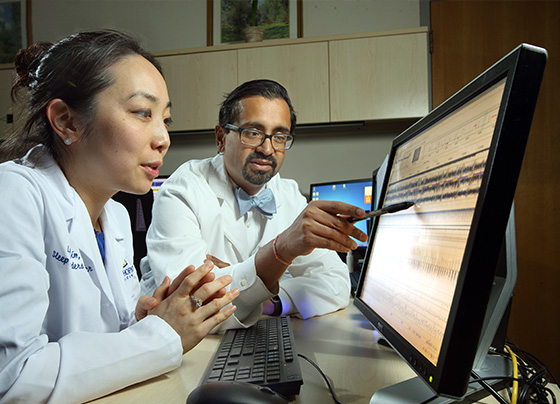
The clinical training program consists of a series of longitudinal outpatient clinic and laboratory experiences, as well as two-month rotations designed to broaden the fellow’s exposure to specialty areas of sleep medicine.
Each fellow will participate in adult and pediatric sleep medicine clinics at both Johns Hopkins Bayview Medical Center and The Johns Hopkins Hospital. Specialty sleep clinics in ENT, dental, neurology, psychiatry, behavioral psychology and pulmonary medicine will complement the fellow’s longitudinal clinic experiences. Finally, the fellow will spend substantial amounts of time working in pediatric and adult sleep laboratories, learning how to conduct, analyze and interpret sleep studies, portable monitoring studies and actigraphy. Fellows also will be active participants in an extensive sleep lecture series, journal club, research seminar and interdisciplinary case conference throughout the fellowship.
Research Program
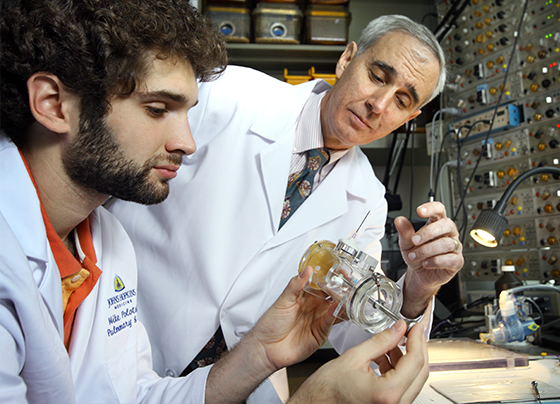
In 2006, a report from the Institute of Medicine highlighted the mandate for training academically oriented medical investigators in sleep medicine (see National Academic Press, 2006, “Sleep Disorders and Sleep Deprivation: An Unmet Public Health Problem”). This report urged that “all academic health centers strive to develop or transform the current sleep activities into interdisciplinary sleep programs. There is too much at stake—a large patient population, high levels of under-diagnosis and a high public health toll—for inaction.”
Fellows who obtain additional research training will pursue a project related to sleep medicine under the guidance of a faculty mentor. A broad range of projects and mentors are available in the basic sciences, translational biology, or clinical physiology and epidemiology.
In pursuing their research project, the fellow will gain exposure and training in all aspects of scientific investigation. Each fellow will learn how to formulate a cogent research plan, prepare a research protocol (for the Institutional Review Board or Animal Care and Use Committees), conduct research, analyze findings and present these findings in research seminars and national meetings. The fellow also will gain experience in preparing a grant application for fellowship funding and at least one original manuscript.
Fellowship Faculty
Fellowship faculty members span the Departments of Anesthesiology, Medicine, Pediatrics, Neurology, Psychiatry, Dentistry and ENT Surgery. Collectively, the teaching academic interests of the faculty reflect the comprehensive breadth and depth of sleep medicine. A brief list of academic activities and research interests of the faculty within each department is provided below.
Anesthesiology
Pulmonary and Critical Care Medicine
Neurology
Psychiatry and Behavioral Psychology
-
Molly Atwood, PhD

- Director of Clinical Training, Behavioral Sleep Medicine Program
- Assistant Professor of Psychiatry and Behavioral Sciences
-
Michael T. Smith, PhD
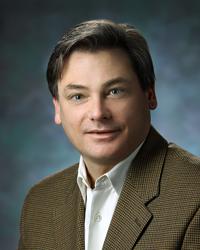
- Director, Division of Behavioral Medicine, Department of Psychiatry, Johns Hopkins Bayview
- Professor of Psychiatry and Behavioral Sciences
Pediatrics
-
Laura M. Sterni, MD
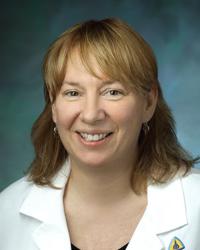
- Director, Johns Hopkins Pediatric Sleep Center
- Associate Professor of Pediatrics
ENT
The faculty is actively involved in the evaluation and management of patients with snoring and sleep-disordered breathing, with particular emphasis on pediatric patients and patients with nasal pathology.
Dental
Steven Scherr, D.D.S.
How to Apply
Due to the COVID-19 pandemic and per both national and the Johns Hopkins Graduate Medical Education Committee guidelines, all interviews will be conducted virtually. Information regarding the interview process will be provided to candidates selected. We plan to interview candidates during the months of September and October.
Eligible fellowship candidates will have completed a residency program in internal medicine, family medicine, neurology, psychiatry, pediatrics, otolaryngology, anesthesiology, or subspecialty training such as a fellowship in adult or pediatric pulmonary medicine.
The Johns Hopkins Sleep Medicine Fellowship Program participates in the National Residency Matching Program. Applications will ONLY be accepted on-line through the Electronic Residency Application Service (ERAS). Please check the ERAS and NRMP websites for specific information and timelines regarding application submission and match-related information, respectively.
In addition to the information required by ERAS, please submit the following online through ERAS as part of your application:
- Current curriculum vitae (CV)
- Three letters of recommendation (including one from your most recent Program Director)
- Dean’s letter or Medical Student Performance Evaluation (MSPE)
- Medical School Transcript
- USMLE Scores
- ECFMG certificate, if applicable
All applicant materials are reviewed, but only select applicants will be asked to come for an interview. Interviews usually are scheduled during the months of September and October. Notification of selection for the fellowship will be through the match.
For more information or further assistance, please contact Cate Weaver, Sleep Medicine Fellowship Coordinator at [email protected]

